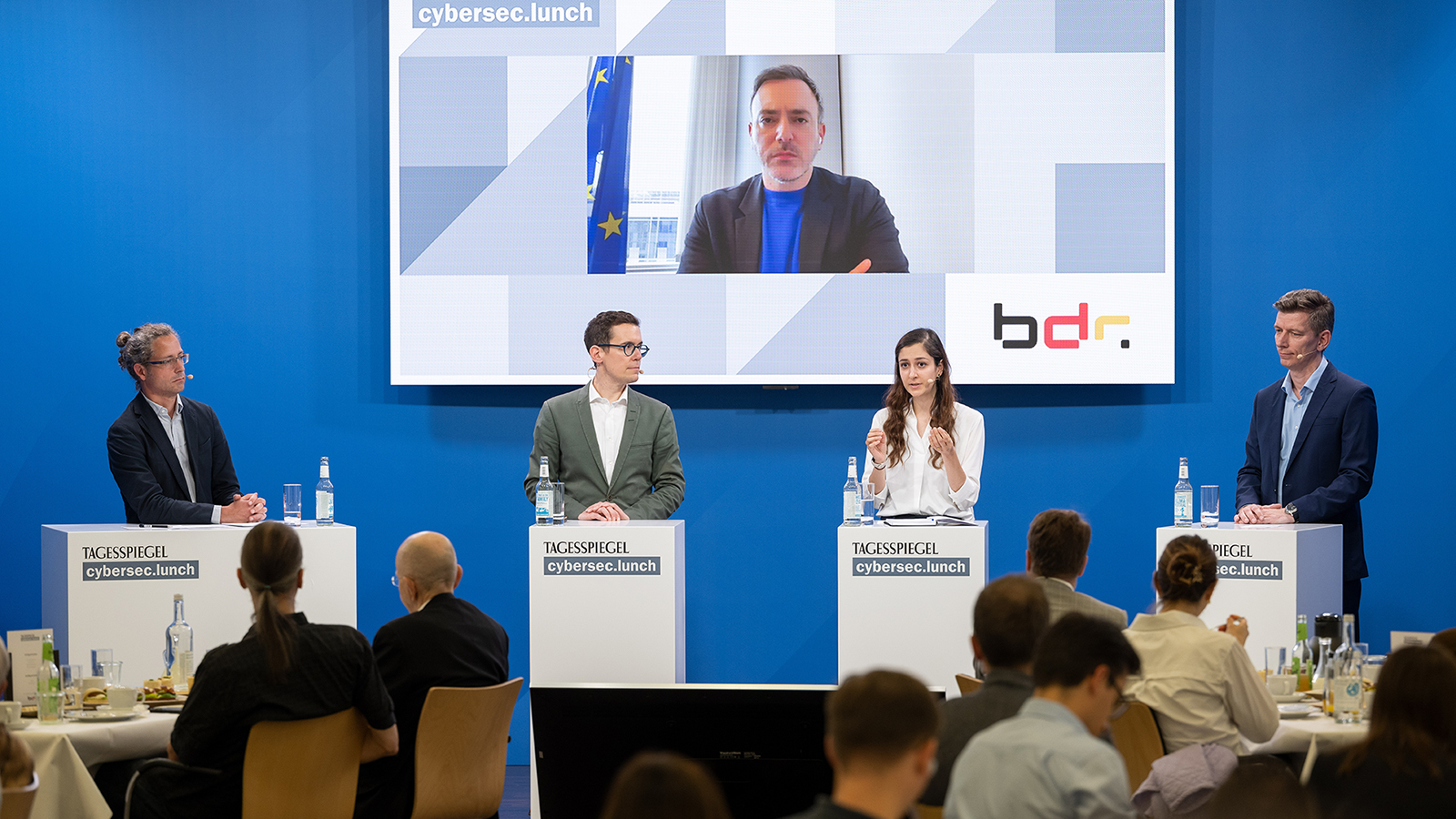cybersec.lunch#24: Trustworthy AI – How much regulation does it really need?
July 10, 2023 – Not a day goes by without new headlines about artificial intelligence. Especially since the presentation of the ChatGPT-4 chatbot, there seems to be no end to the reports on new application possibilities. At the same time, experts are warning of possible challenges such as a potential loss of trust in communications and the loss of jobs. At the 24th cybersec.lunch on 6 July 2023, speakers discussed the necessary framework conditions for artificial intelligence.

©Tagesspiegel/ Laurin Schmid
from right to left: Moderator Oliver Voß, Benjamin Brake - Leiter der Abteilung Digital- und Datenpolitik im Bundesministerium für Digitales und Verkehr (BMDV), Pegah Maham - Projektleiterin Künstliche Intelligenz & Data Science, Stiftung Neue Verantwortung, Jörg Fischer - Fellow im Bereich Innovations bei der Bundesdruckerei GmbH sowie im Hintergrund virtuell dazugeschaltet Sergey Lagodinsky - Abgeordneter des Europäischen Parlaments (MEP) und stellv. Vorsitzender des Rechtsausschusses im Europäischen Parlament.
Benjamin Brake, department head at the Federal Ministry of Digital Affairs and Transport, emphasized the need for mandatory self-regulation by companies, but underscored the Federal Government’s agreement with the current status of the AI Act. Common standards to create framework conditions also need to be established beyond Europe so that companies have the opportunity to scale up here as well.
Sergey Lagodinsky, a member of the European Parliament and vice chair of the Legal Affairs Committee, pointed out that most AI applications are not regulated. The necessary standards would have to be developed on a transatlantic level. Companies would need to be actively supported to allow Germany to keep up with other continents.
Pegah Maham, Project Manager of Artificial Intelligence & Data Science at Stiftung Neue Verantwortung, underscored in particular the great potential of AI in the fields of education and medicine. Good regulation is therefore crucial. In future, there must be flexibility for companies. She stressed that AI should not be hindered by regulation.
Jörg Fischer, Fellow in Innovation at Bundesdruckerei GmbH, highlighted the opportunity to make processes more efficient. The AI Act offers the opportunity to create visibility in Europe, he said. In addition, more needs to be invested in research – explicitly not only in AI research, but also in other fields of digitalisation.
About the cybersec.lunch
The cybersec.lunch is a regular format of the Tagesspiegel, supported by the Bundesdruckerei Group. In just a lunch break, numerous stakeholders from politics, business and science come together to discuss pressing issues of digitalisation. The concept: two to four guest speakers first briefly present their views on the respective topic of the cybersec.lunch and then discuss it together with the participants.

